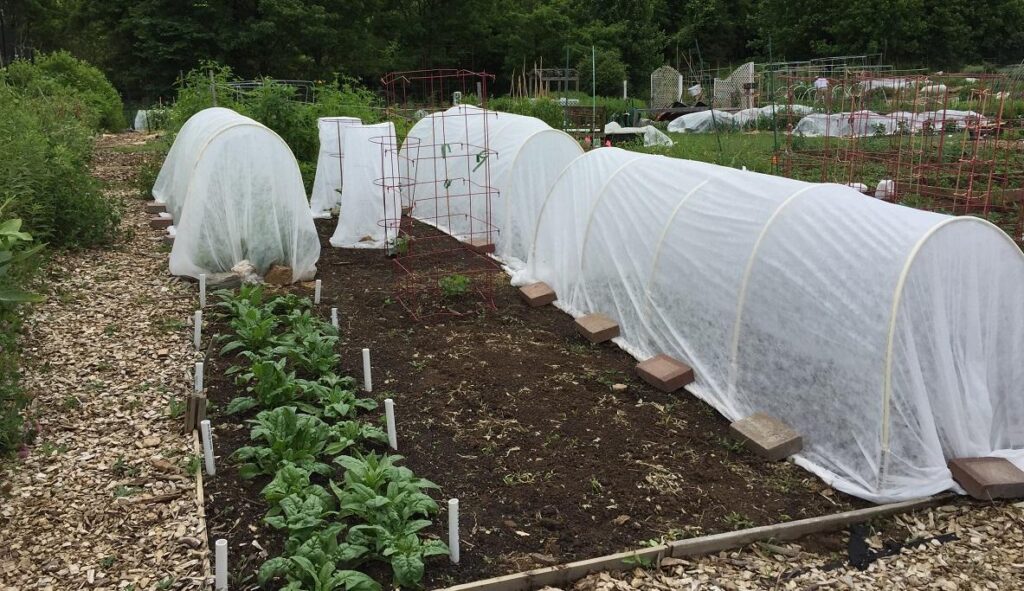
By Phillip Prichard, Master Gardener Extension Volunteer
It’s January it is cold, probably deary and you’re eager to put gardening skills to work. First, take a mental note through your 2024 garden, or review notes or photos. If you didn’t take any notes, plan to keep records in 2025. List anything you want to do, before thumbing through gardening catalogs (and then spring fever) takes hold. Did you have a pollinator garden, plants that attract birds, or a vegetable garden,?
Following the UGA Extension Gardening Calender, here are some suggestions for January. According to the 2023 USDA Hardiness Zone Map Paulding County, Georgia is in Zones 8a (10°F to 15°F).
- Make a garden plan. Plan the garden to include various vitamin groups.
- Consider planting a few new varieties and old favorites (See Vegetable Gardening in Georgia, Circular 963).
- Plan the amount of each vegetable to be planted, including enough to can and freeze. Allow about 1/10 acre of garden space for each family member (ask your county Extension agent about So Easy to Preserve).
- Buy enough quality seed for two or three plantings to lengthen the production season.
- Take soil samples if you have not already done so, and take them to your county Extension office for analysis.
- Apply compost and plow it under if you did not do so in the fall.
- Apply lime, sulfur, and fertilizer according to the soil test results and vegetable requirements. Buy 100 lb of fertilizer for each 1/10 acre to be planted (if manure is not available, buy at least half again more). Use 5-10-10 or 6-12-12 analysis, depending on soil test and vegetable requirements.
- Get plant beds or seed boxes ready for growing plants such as tomato, pepper, and eggplant. Have beds ready for planting in early February.
- Check on your compost pile and make sure it is ready for use in the spring.
- Go by your county Extension office and get copies of Georgia Extension gardening publications.
- TURF -Have a Soil Test; Service and test spray equipment; Spray winter weeds with approved herbicides; Spray wild onions with approved herbicides.
- Flowers – Prepare rose beds and plant later in the month; lime rose beds if soil test indicates need.
- HOUSE PLANTS – Fertilize monthly with liquid fertilizer; Check for insects
- VEGETABLES – Make garden plan and prepare soil; Prepare flats and seed spring vegetables for transplanting in February and March; Plant asparagus and onions; Service power equipment such as rotor tiller, lawn mowers, etc.
- FRUITS AND NUTS – Prune pears, apples, muscadines, and blackberries; Mulch strawberries; Plant fruit trees. Consult Extension Service for recommended varieties and pollinators for our area.
Consider Winter sowing in milk jugs is a low-maintenance method for starting seeds outdoors in the winter. Here’s how to do it:
- Prepare the jug: Clean a milk jug, poke holes in the bottom for drainage, and cut it horizontally around the middle, leaving a 1-inch hinge.
- Fill the jug: Fill the bottom half of the jug with about 4 inches of potting mix or a soilless seed starting mix. You can also use a mixture of compost, perlite or vermiculite, and peat moss.
- Plant the seeds: Sprinkle the seeds on top of the soil and pat them down lightly. Follow the seed packet’s instructions for how deep to plant them.
- Close and seal the jug: Flip the top half of the jug back over the bottom and seal it with duct tape.
- Place outside: Put the jug in a sunny spot that’s exposed to precipitation.
- Check and water: Check on the seeds occasionally to make sure they don’t dry out.
- Transplant: When the temperatures are in the 50s, you can transplant the seedlings to your garden.
You can start winter sowing after the winter solstice on December 21st. Some people recommend starting in January and February because late December is usually busy. You can also continue winter sowing into March and April.
Winter sowing is a time-saver because the seedlings grow under natural conditions, so you don’t need to harden them off before moving them to your garden
What do horticulturists do in the winter? The horticulturists create comprehensive designs for every garden and order and propagate plants during this time to be ready for the first sign of spring.
Visit the University of Georgia Cooperative Extension website. They have the expertise and experience to help support a healthier Georgia. As part of the UGA College of Agricultural and Environmental Sciences, learn how UGA Extension agents and specialists serve your community at work, home and play. They support our communities through personalized services like workshops, classes, consultations, certifications, camps and educator resources.
Happy gardening, remember Spring is near.